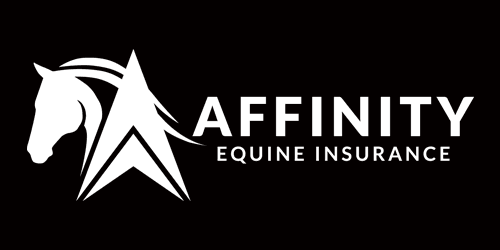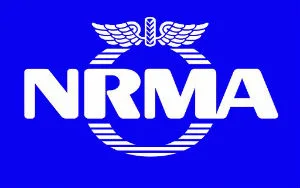You can either get horse float insurance with normal caravan and trailer insurance policies or as specialised cover. It can cover you for accidental and intentional damage, fires, storms, floods, theft and more.
Who offers cover for horse floats?
*Always check the Product Disclosure Statement before getting a new policy. Table last checked August 2024.
What’s included in horse float insurance?
There are a few types of insurance to consider. Firstly, your compulsory third party (CTP) policy that you have on your car will also extend to your horse float. This means that if you get into an accident and hurt someone or yourself, you're covered for the costs that arise from that. It's important to note that this type of insurance only covers people, not property. So if your horse float is damaged in the accident, it won't be covered by this type of insurance.
To be covered for damage to your horse float, you'd need comprehensive insurance for it. Horse floats are typically covered under caravan or trailer insurance policies. Check with your insurer when you get quotes to be sure. With this type of policy, you'll be covered for things like;
- Accidental damage
- Storm or flood
- Fire and theft
- Earthquakes
- Emergency expenses
- Towing costs
- Contents
- Legal liability
Exclusions, limits and conditions
If one seemingly equivalent policy is a lot cheaper than another, it might be because there are specific exclusions, limits or other conditions which affect the cover. These define policies as much as the inclusions do.
Limits and conditions to be aware of
The main limit is your sum insured or the current market value of your horse float. You will not be able to claim more than this amount for the trailer in the event of a total loss. With trailer policies, you can often choose either market value or sum insured, while equine insurance might only give you market value.
- Market value. If you choose this option, your insurance will pay out the market value of your float at the time of the loss, subject to depreciation at standard rates.
- Sum insured. With this option, you agree on the value of the trailer ahead of time, and may claim this amount in the event of a total loss.
The preferable option depends on a range of factors, including what kind of float you have, whether it has any special features or aftermarket additions and how well you maintain it. Often, professionals will insure at an agreed value.
- Any company branding, special features or similar features may not count towards the market value of the trailer.
- A well-maintained horse float might not depreciate as quickly as the market value indicates.
- With market value, the insurance payout might not be enough to get the equivalent replacement trailer you need.
Specific types of cover will have sublimits you need to pay attention to. For example, you might not be able to claim more than $500 for the contents of a trailer regardless of how much they are worth. With liability cover, the limits are usually in excess of $20 million or more.
Specific conditions will often apply for payouts. For example, you may not be able to make a claim for emergency accommodation unless you’re more than 100km from home at the time. There also may be specific conditions regarding which parts and equipment are covered.
How much does horse trailer insurance cost?
The cost of a policy depends on your location, the type of cover and the value of your horse float. Based on your answers, the insurer will determine how risky it is to insure you and base your premium off this.
Your risk is determined based on a combination of how likely you are to make a claim and how much it will cost if you do. As such, it can be affected by the following:
- The overall value of your trailer and whether you’re covering it at market value or at an agreed sum. Market-value insurance policies are generally cheaper because the amount that the insurer has to pay out for a total loss decreases over time. The other types of cover you have included will also have an effect.
- Whether you are under 25 or otherwise qualify as an inexperienced driver since you are statistically more likely to have an accident.
- How comprehensive your cover is and what you are able to claim. Higher-level cover carries higher premiums.
How much cover do I need?
Finding the right policy is about balancing cost and cover. Policies need to be affordable, but should also deliver appropriate cover for your needs. Generally, you should have enough cover to make sure that you’ll be able to replace the float in the event of a total loss.
You may also want to consider the following:
- Does your income depend on it? If you need your horse float to earn a living, it is a good idea to make sure you can keep on earning even in the event of a total loss. Insuring at an agreed value and making sure you have comprehensive cover will generally cost more, but might be well worth it.
- Where and when you’ll be using it. How and where you tow the horse float will affect the types of risks you encounter. You might want to prioritise cover for the more likely hazards.
- What kind of excess you can afford. This can make a significant difference to your premiums, and it may be worth opting for a higher excess if you think you’re unlikely to make a claim.
Taking steps to maintain your float (wear and tear damage isn’t covered) and extend its lifespan will help limit your claims. If your horse float or trailer isn’t in good condition and you aren’t taking appropriate care of it, insurers may reject your claims.
FAQs
Sources
Ask a question
More guides on Finder
-
High risk car insurance
Learn the factors that may cause you to be considered a high-risk driver and whether you might be eligible for cover.
-
Car insurance multi-policy discounts
What you need to know about getting a multi-policy discount with your car insurance.
-
Car Insurance ACT
Living in the ACT? Here’s all you need to know about car insurance.
-
Rideshare car insurance
Find out what car insurance options are available for rideshare drivers, including Ubers.
-
Can DUI offenders get car insurance?
Your guide to car insurance when you've been convicted of drink driving.
-
Learner driver insurance
Complete guide to getting car insurance for learner drivers in Australia.
-
Car insurance in NSW
Your guide to getting car insurance in NSW.
-
Short term car insurance Australia
Find out what short term car insurance options are available in Australia.
-
Switching car insurance
Is it time to make the switch? If you're not happy with your current car insurance provider then the answer might be yes.
-
Compare third party car insurance
This article runs through the ins and outs of choosing a good third party property damage car insurance policy.





